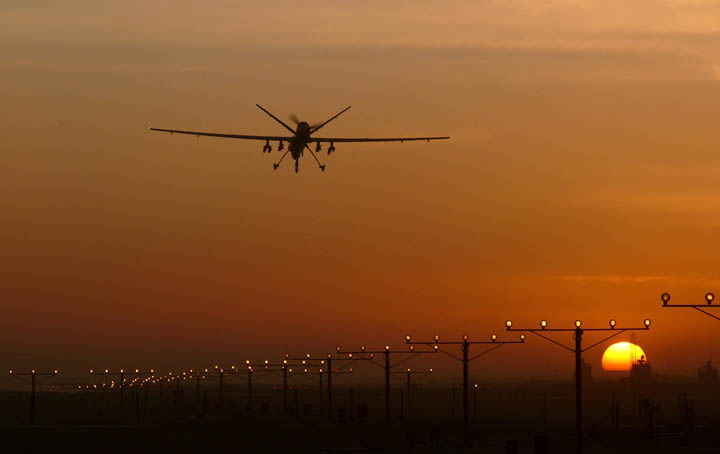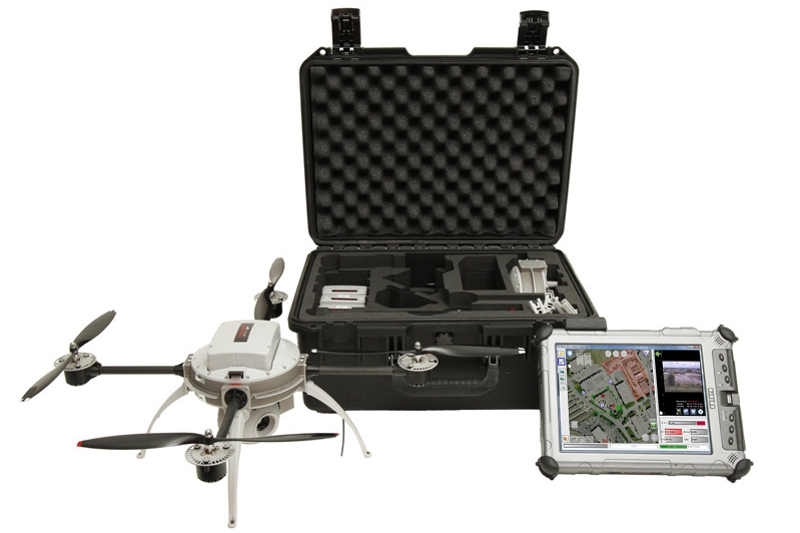Privacy concerns appear likely to continue slowing the Federal Aviation Administration (FAA) congressional mandate to integrate unmanned aerial systems (UAS) into the national airspace.
Privacy concerns appear likely to continue slowing the Federal Aviation Administration (FAA) congressional mandate to integrate unmanned aerial systems (UAS) into the national airspace.
On July 2, the U.S. House Appropriations Committee issued a report on its transportation appropriations bill (HR 2610) for the 2014 fiscal year (FY14) that includes a measure directing the FAA “to collaborate with other Federal agencies in evaluating the impact that broader use of UAS in the national airspace could have on individual privacy.” The House bill also prohibits the FAA from issuing final regulations on the integration of UAS into the national airspace until the Department of Transportation submits a report within a year of the bill’s passage detailing the results of such a collaboration.
This latest development comes as an outgrowth of concerns expressed most recently in an “online listening session” held in April by the FAA to elicit responses to its proposed privacy policy for UAS test sites. The 2012 FAA Modernization and Reform Act that funded the UAS integration project directs the agency to establish six such tests sites.
Privacy issues raised during the April 3 online session spilled beyond the test sites themselves, prompting the House committee report to conclude that “a more comprehensive approach to [UAS-related] privacy may be warranted.”
Such concerns have already slowed the FAA’s progress toward its 2015 deadline for UAS integration. Jim Williams, manager of the FAA UAS Integration Office, told the listening session that the agency was ready to begin the test site selection process in July of 2012.
“However, we chose to delay the start of the selection process until we were able to adequately address privacy concerns as they relate to test site operations,” Williams said.
Dozens of states have also proposed laws limiting domestic UAV operations and, of course, the expenditure-limiting effects of budgetary “sequestration” poses an across-the-board threat to all federal activities. Last week, Maine Gov. Paul LePage vetoed a state measure that would have set up protections for citizen privacy by regulating the use of UAVs by law enforcement agencies.
As reflected in the comments in the April 3 listening session, the UAS industry and would-be unmanned aerial vehicle (UAV) operators believe that the burden for handling the privacy issue should not fall on the FAA. Instead, they argued, that responsibility should remain with federal agencies already dealing with the issue, such as the Department of Justice, the Department of Homeland Security, and the Federal Communications Commission.
Ben Gilo, government relations manager and general counsel for the Association for Unmanned Vehicle Systems International (AUVSI), advised the FAA, that “AUVSI does not believe the FAA should govern UAS operations based on privacy issues or concerns. The FAA should stay focused on its stated mission, which is to provide the safest, most efficient aerospace systems in the world.”
Gilo added, “AUVSI believes information gathered by UAS should be treated no differently than information gathered by a manned aircraft or any other electronic means. Therefore, any new legislation or any regulations addressing privacy issues should be technology neutral. That being said, the AUVSI does support the development and advancement of the UAS technology in a safe and responsible manner while respecting existing privacy laws and insuring transparency and accountability.”
Typical of the user advocates was the testimony by Air Force Major General Jim Poss (Ret.) director of strategic initiatives in the High Performance Computing Collaboratory, Mississippi State University.
“We would’ve loved to be able to have flown unmanned aerial systems in the aftermath of Hurricane Katrina [to look for survivors],” Poss said. “We had a similar experience in the BP oil spill just a few years ago where, again, we weren’t able to fly unmanned systems that could’ve potentially tracked that oil spill movement in real time.”
Poss added that he “strongly” agreed “we should leave privacy, which is a very important concern, up to [other federal] agencies.”
The anticipated benefits of UAS applications also figured large in the arguments. In a March report on the economic impact of UAS integration, AUVSI predicted that by 2025 it would create 100,000 jobs and add $82 billion to the U.S. economy.
Brian Walsh, a commercial reserve pilot from Illinois who agreed with freeing FAA from leading the privacy charge, suggested that fully integrating “may be too large of a concept for the general public to accept as a total idea. . . . The FAA needs to start with integrating specific missions such as agriculture [and] power line surveying and build public confidence as these systems develop into safer, more beneficial systems that have more potential economic benefits. . . .”
Privacy advocates, however, argued that as the lead agency for the UAS integration project, FAA did indeed have a responsibility to address the issue. Julia Horwitz, an open government fellow with the Electronic Privacy Information Center (EPIC) in Washington D.C., said “The FAA is uniquely positioned to regulate many of the significant privacy concerns involved with the use of domestic drones.”
In 2012 a coalition of more than 100 organizations and experts, including EPIC, petitioned the FAA to take action on the privacy risks associated with surveillance UAVs. “The FAA is the primary licensing entity for drone operators and, therefore, should require all drone operators, as a condition for licensing, to be listed in a publicly accessible database and submit a data collection statement,” Horwitz said.
The House Appropriations Committee said that it expected the DoT report “to address the application of existing privacy law to governmental and non-governmental entities; identify gaps in existing law, especially with regard to the use and retention of personally identifiable information by both governmental and non-governmental entities; and recommend next steps in how the FAA or other Federal agencies can address the impact of widespread use of UAS on individual privacy.”
Williams will provide an update on the UAS integration project in an August 13 “Hot Topics Session” presentation to the AUVSI’s Unmanned Systems 2013 conference in Washington, D.C.






